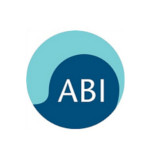
Katharine Moxham, spokesperson for Group Risk Development (GRiD) and one of five panellists at the Mental Health Dialogue, said group income protection products offered great support but that employer awareness of preventing mental health issues needed addressing.
She added employee assistance programmes (EAPs) were “extremely effective” at keeping people in the workplace and helping those off sick to come back to work.
Dr Mark Winwood, clinical director for psychological health at AXA PPP Healthcare and panellist, said employer education about mental health issues was key to prevent absenteeism and claims.
He said: “Managers are frightened of the unknown. Mental health problems are still frightening.
“EAPs can offer a great support. But unfortunately, the rapid growth of EA in the UK has seen prices collapse and the market become commoditised. The only way to survive for some providers in this price driven market has been to restrict access to service.”
A delegate from Canada Life said: “The problem is not so much about people having mental health issues it is more about workplace relationships and the dynamic between employer and employee.
“The hub of the issue often we see when working face-to-face with employees and employers on rehabilitation is an issue in the working relationship.”
According to the delegate, Canada life was looking more at providing mediation services.
Paul White, client director at Enrich Employee Benefits, said that talking to corporate clients about these issues was what differentiated the role of an employee benefits consultant role from just the group risk broker.
He said: “There is an opportunity here for advisers to be helping clients outside of just what products can offer them. Employers do not know where to go and intermediaries are learning how they can advise in this gap.”
White added that Enrich had noted a positive response from employers wanting to talk about mental health issues in the workplace.
“Early intervention is all very well, but it means we have intervened when something has manifested itself,” he said.
“Insurer product support needs to be aligned to what the employer is doing to prevent it in the first place. There is no easy solution.”
















